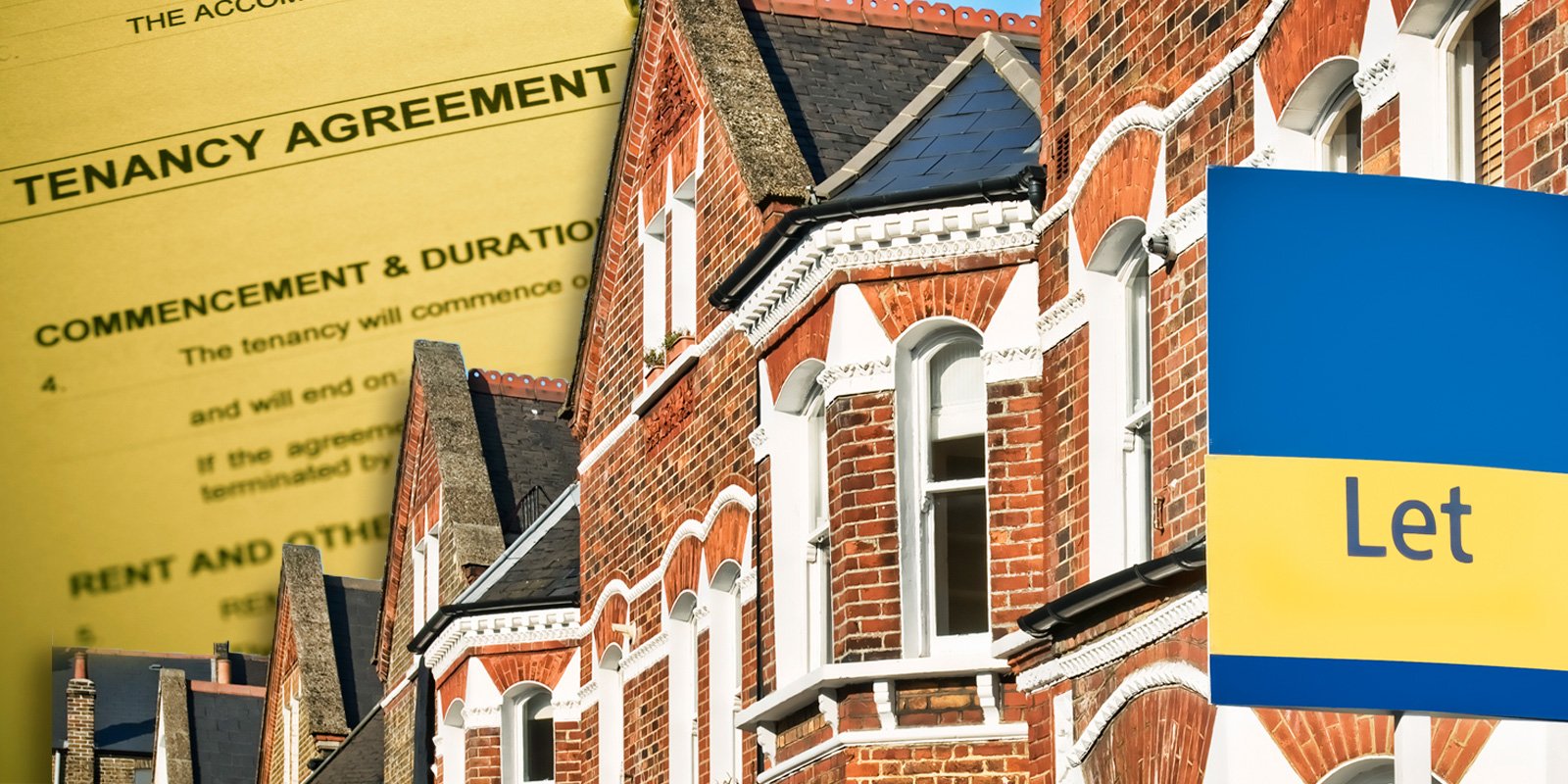
Landlords Beware: UK Renters' Rights Act Brings Sweeping Reforms
In Short
The Situation: Landlords in the private rented residential sector are accustomed to giving their tenants fixed-term tenancies which allow for the landlord to recover possession on a "no fault" basis after the contractual end date. This is set to change….
The Development: On 27 October 2025, the Renters' Rights Act (the "Act") was passed. The Act will abolish fixed-term assured residential tenancies and no fault evictions in the private rented sector, and will introduce a host of other significant changes to that sector. Purpose-built student accommodation ("PBSA") will be exempt from the new regime, subject to some provisos.
Looking Ahead: Regulations are awaited which will bring into force some of the key changes. It is anticipated that the UK government will allow a transition period of at least several months before the new regime commences, albeit clarity is awaited on this aspect. Landlords should assess what steps they need to take, both for existing and new tenancies.
Abolition of Fixed-Term Tenancies
From the Act's commencement date (which is still to be confirmed by the government), all new assured tenancies will be periodic and can no longer have fixed terms. Any provision for a fixed term will have no effect. Periodic tenancies will be for the same duration as the rent period, which cannot exceed a month.
Assured shorthold tenancies ("ASTs"), commonly used by landlords, will be abolished. Existing ASTs will automatically be converted into assured periodic tenancies, which will continue indefinitely unless validly terminated. Landlords will be permitted to terminate tenancies on prescribed grounds only, whereas tenants can terminate by giving two months' written notice.
Abolition of "No Fault" Evictions
The abolition of section 21 of the Housing Act 1988 (the "1988 Act") from the commencement date means it will no longer be possible for landlords to seek to recover possession after the contractual term of the tenancy has ended by serving a notice for possession on a "no fault" basis. A landlord will be able to recover possession only if they have served a possession notice under section 8 of the 1988 Act and then proven one or more of the grounds of possession in schedule 2 of the 1988 Act.
Amendments and Expansions to Grounds for Possession
The grounds for possession set out in schedule 2 of the 1988 Act are to be widened. Rent arrears will not be a mandatory ground for possession unless the tenant has fallen into three months (increased from two months) of arrears and the landlord has given four weeks' (increased from two weeks') notice of intention to commence possession proceedings. Effectively, tenants can be expected to accrue at least four months' rent arrears before a landlord can bring a tenancy to an end on a mandatory basis.
Rent Increases
Landlords may increase a tenant's rent during the tenancy to the market rate only once per year by serving a "section 13 notice". They must provide at least two months' notice, and any increase can take effect at least one year after the start of the tenancy only. Tenants can challenge a proposed rent increase at the First-tier Tribunal if they believe it is above market rate. The Tribunal is expected to have the power to back-date any award of increased rent.
Restrictions on Payments of Rent in Advance
The Act bans pre-tenancy payments of rent. This means that the parties will need to have signed and dated the tenancy before the landlord can ask for any rent.
Payments of holding deposits or tenancy deposits are still allowed before a tenancy is completed, and the holding deposit can be used to pay the initial rent due in the "permitted pre-tenancy period". This is the period after the tenancy has been completed but before the term of the tenancy has begun. The landlord is also able to ask the tenant to pay the initial rent during the pre-tenancy period. However, a fundamental change introduced by the Act is that rent periods in a tenancy cannot exceed one calendar month. So quarterly (or longer) rent periods will be abolished and the most that a landlord can ask for during a tenancy is one month's rent in advance. Existing ASTs which have quarterly rent payments will be automatically converted by the Act into assured periodic tenancies with monthly rent periods.
If the tenant has not paid the initial rent before the term of the tenancy begins, the landlord would still need to hand over the keys on the tenancy start date. Whilst there is the possibility of seeking to apply conditions precedent to the tenancy, so that the tenancy is completed but not fully in force until the tenant has paid the initial rent, it seems anti-avoidance regulations may follow (see below) and such provisions may receive particular scrutiny.
Written Statement of Terms to be Given to Tenant Before Tenancy
For new assured periodic tenancies, landlords will need to give their tenants written statements of such terms of the tenancy as are prescribed by regulations before the tenancy is completed.
Transitional Arrangements for Existing Tenancies
In relation to existing ASTs, landlords will still be able to serve notices under section 21 of the 1988 Act (i.e., no fault termination) before the commencement date should they wish to do so, and to subsequently commence proceedings for possession pursuant to those notices, subject to certain time limits; the existing AST will continue in those circumstances. If proceedings for an order for possession under section 21 have been commenced in reliance on such a notice by the commencement date, those proceedings will remain valid, and the tenancy will remain as an AST, until the proceedings are concluded. Landlords do therefore have an opportunity to bring existing ASTs to an end if they do not wish them to be converted into assured periodic tenancies, although the window for doing so is short.
Pre-agreed rent increases which take effect before the commencement date will be unaffected by the Act.
For existing written tenancies, landlords will be obliged by forthcoming regulations to give their tenants written information about the changes made by the Act within one month of the commencement date. The regulations may provide for the information to be given in a prescribed form.
Anti-Avoidance and Penalties
The Secretary of State has power to make regulations which may (amongst other things) provide for pre-existing agreements to have effect with specified modifications, or to cease to have effect, if the Secretary of State considers that such agreements would not operate appropriately having regard to the Act. These powers appear to be aimed at ensuring there is no circumvention of the new regime.
Specific statutory duties will be introduced so that landlords, and their agents, must not:
- Purport to let a dwelling for a fixed term;
- Purport to bring an assured periodic tenancy to an end by service of a notice to quit; or
- Serve on the tenant of an assured periodic tenancy a purported notice of possession.
Contravention of any of these duties, or the duty to give a written statement of the terms of the assured periodic tenancy before it is completed, could result in a maximum civil penalty of £7,000 per breach. If landlords or their agents invite, encourage or accept prohibited pre-tenancy payments of rent, a civil penalty of up to £5,000 per instance may be levied against them.
The Act and PBSA
It will no longer be possible for PBSA providers to grant new ASTs. All existing PBSA ASTs at the commencement date will be converted into assured periodic tenancies. Those PBSA landlords who have signed up to a government-approved code of practice (such as the Accreditation Network UK or Unipol Code of Standards) will be entitled to serve written notice on their existing tenants within one month of the commencement date, specifying that the landlord requires possession of the premises for the next academic year because he or she intends to let to other full-time students. This is under the new possession Ground 4A, which is specific to student accommodation and which, in respect of existing tenancies, will apply (on a one-off basis) to all Code-compliant PBSA lettings.
For new PBSA lettings, private PBSA providers will be exempt from the new assured periodic tenancy regime (and the various changes it brings) if: (i) they have signed up to the Code; and (ii) they are letting to full-time students at "specified educational institutions" ("SEIs") as defined for the purposes of the legislation. This will allow PBSA landlords to continue offering fixed-term tenancies aligned with the academic year, outside the scope of assured tenancies altogether (they will operate as common law tenancies). Thus, they will still be able to require students to vacate at the end of the academic year. It seems this exemption for new Code compliant PBSA lettings will come into force on 27 December 2025 (i.e. two months after the Act has passed), albeit it looks likely the government will need to pass regulations to accompany the exemption.
If PBSA providers are not members of the Code, or for future lettings to students who are not attending SEIs, they will be able to offer only statutory assured periodic tenancies, and their tenants could terminate at any time with two months' notice. This could lead to more vacancies during the academic year, and the landlord would be able to rely only on the grounds of possession under the 1988 Act, as outlined above (although see below about Ground 4A for future lettings).
Subject to detail to be set out in further regulations, private PBSA providers who are Code members will have their English properties exempted from Houses in Multiple Occupation ("HMO") rules. The apparent intention is to remove Code-compliant PBSA lettings from both the assured periodic tenancy and HMO licensing regimes. This will be welcomed by PBSA providers, and will result in significant annual savings on HMO licensing fees. There is a potential quirk arising from this, though, in that for future lettings the student accommodation possession Ground 4A will apply only to HMOs. Accordingly, any future PBSA lettings to non-SEI students would appear to be: (i) not exempt from the assured periodic regime but (ii) not able to gain the benefit of possession Ground 4A.
Many PBSA providers are already Code members and there is a clear incentive for those that are not to become members quickly.
Other Aspects of the Act
The Act will also:
- Require landlords who offer assured periodic tenancies to sign up to future national schemes (the details of which are awaited): a digital private rental sector database and a landlord redress scheme. There will be adverse consequences for failure to do so, including criminal offences.
- Apply the "Decent Homes Standard" to assured periodic tenancy dwellings.
- Impose a statutory duty on landlords of assured periodic tenancy dwellings to fix serious health hazards within a set time frame (Awaab's law).
- Give tenants of assured periodic tenancies the right to request that they can keep a pet, which the landlord may not unreasonably refuse (although there are some qualifications to this).
Looking Ahead
Landlords need to be ready for the new regime. For existing ASTs, they will need to serve on their tenants the prescribed notice of the effect of the Act within one month of the commencement date, and in the case of existing PBSA lettings (assuming they are Code members), they will need to serve notice that they require possession under Ground 4A. For new residential tenancies, landlords will need to review their standard-form tenancies and make any changes to ensure they are compliant with the Act. They will also need to serve the written statement of terms of the new tenancy as required by the forthcoming regulations.
Three Key Takeaways
- The Act will abolish fixed-term tenancies in the private rented residential sector, replacing them with assured periodic tenancies.
- Landlords will no longer be able to evict on a no fault basis at the end of a fixed term—they must prove prescribed grounds to terminate an assured periodic tenancy. Constraints will be placed on landlords' ability to increase rents during the tenancy and to charge rents in advance.
- Future PBSA tenancies will be exempt from the new regime if the PBSA operator is a member of the approved Code and is letting to students at specified educational institutions.








